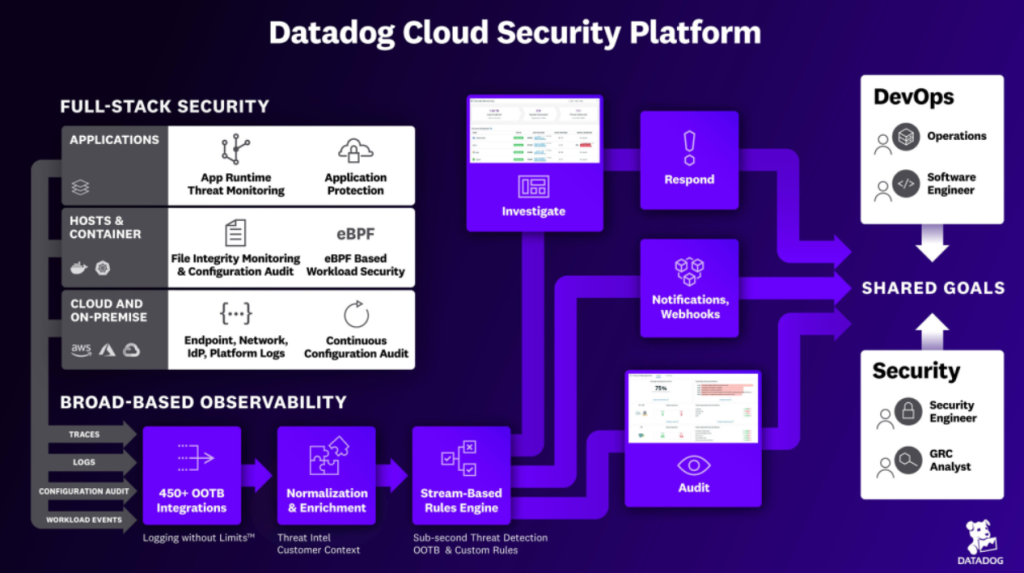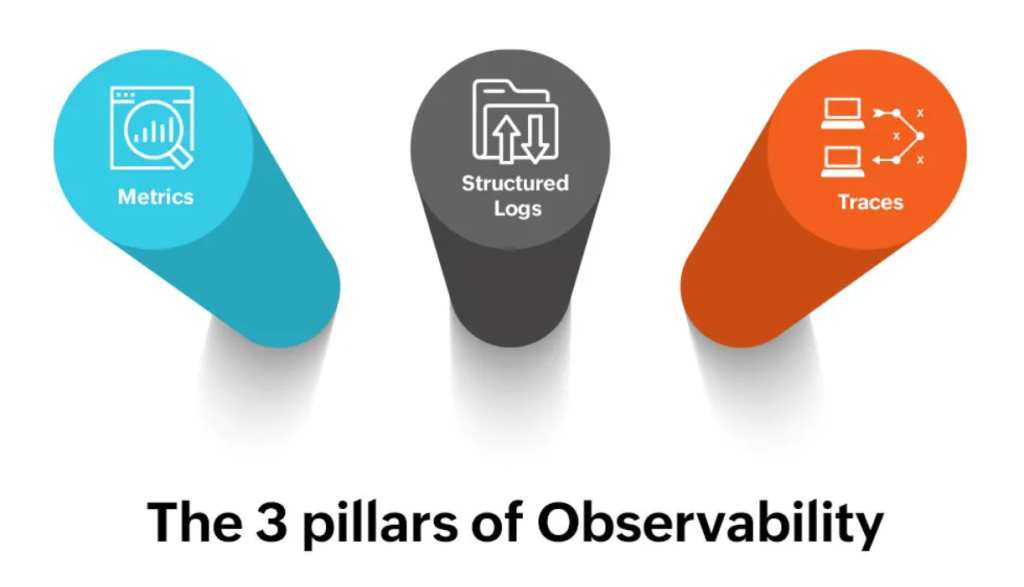Upgrade & Secure Your Future with DevOps, SRE, DevSecOps, MLOps!
We spend hours on Instagram and YouTube and waste money on coffee and fast food, but won’t spend 30 minutes a day learning skills to boost our careers.
Master in DevOps, SRE, DevSecOps & MLOps!
Learn from Guru Rajesh Kumar and double your salary in just one year.

Datadog enhances monitoring and observability within DevOps by providing a unified platform that integrates metrics, traces, and logs from various sources. This integration offers DevOps teams comprehensive visibility into their applications and infrastructure, facilitating proactive performance monitoring and rapid issue resolution. By fostering a culture of observability, collaboration, and data-sharing, Datadog supports organizations in their DevOps transformations, promoting more agile and efficient workflows across teams.
Unified Monitoring and Observability
In the realm of DevOps, achieving a holistic view of both infrastructure and applications is paramount. Datadog addresses this need by providing a unified platform that consolidates various monitoring aspects. Key features include:
- Comprehensive Data Collection: Datadog integrates metrics, logs, and traces from over 800 technologies, offering a centralized view of system performance. This extensive integration ensures that teams can monitor diverse components within a single platform, facilitating seamless observability.
- Real-Time Dashboards: Customizable dashboards display real-time data, allowing teams to visualize and analyze system health instantly. This immediacy aids in proactive issue detection and resolution, aligning with DevOps’ emphasis on agility.
- Cross-Team Collaboration: By providing a single source of truth, Datadog enhances collaboration between development and operations teams. Shared insights foster a culture of transparency and collective responsibility, core tenets of the DevOps philosophy.
Automation in Monitoring
Automation is a cornerstone of DevOps, aiming to streamline processes and reduce manual intervention. Datadog incorporates automation into its monitoring solutions through:
- Autodiscovery: Automatically detects and monitors new services and infrastructure components as they are deployed. This ensures that monitoring keeps pace with dynamic environments, a common characteristic of modern DevOps practices.
- Monitoring-as-Code: Integrates with configuration management tools like Chef and Terraform, allowing teams to define monitoring configurations programmatically. This approach treats monitoring setups as code, promoting consistency and version control.
- Automated Alerting: Configures alerts based on predefined thresholds or anomalies, reducing manual oversight. This proactive stance ensures that potential issues are flagged before they escalate, maintaining system reliability.

Enhanced Observability with the Three Pillars
Datadog emphasizes the three pillars of observability—metrics, logs, and traces—to provide deep insights into system behavior. Features include:
- Metrics Monitoring: Collects and visualizes performance metrics to monitor system health. This quantitative data offers a broad view of system performance, aiding in capacity planning and trend analysis.
- Log Management: Aggregates and analyzes logs for troubleshooting and auditing purposes. Logs provide a granular view of system events, essential for diagnosing specific issues and understanding system activities.
- Distributed Tracing: Offers end-to-end visibility into application requests, aiding in performance optimization. Traces help identify bottlenecks and latency issues across microservices architectures.
Scalability and Flexibility
Designed to scale with growing infrastructures, Datadog provides flexible monitoring solutions. Key aspects include:
- Scalable Data Ingestion: Handles large volumes of data from diverse sources without compromising performance. This ensures that as organizations expand, their monitoring remains robust and responsive.
- Flexible Integrations: Supports a wide range of integrations, allowing customization to specific organizational needs. This adaptability ensures that Datadog can fit into various tech stacks and workflows.
- Adaptable Alerting: Enables the creation of dynamic alerts that adjust to evolving system baselines. This flexibility ensures that alerting mechanisms remain relevant as systems change.
Security and Compliance
Incorporating security into the DevOps lifecycle, often termed DevSecOps, is crucial for modern organizations. Datadog integrates security monitoring to ensure compliance and protect against threats. Features include:
- Security Monitoring: Detects and alerts on security threats in real-time, facilitating prompt response. This proactive monitoring helps identify vulnerabilities and potential breaches.
- Compliance Reporting: Provides tools to ensure adherence to industry standards and regulations. Automated compliance checks and detailed reporting assist organizations in maintaining regulatory compliance.
- Unified DevSecOps: Breaks down silos between development, operations, and security teams, promoting a collaborative approach to security. This integration ensures that security is a shared responsibility throughout the development lifecycle.